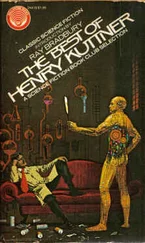All sails were full. She was already gone, behind them. Somewhere off the stern, in the Mediterranean Sea, east of Malta, out of sight of land. Margaret imagined meeting Mrs. Randolph’s relations one day, or George from London, and having only these few unlovely facts to offer.
A week later, approaching Aden, Margaret pulled her own aching tooth with a string. She’d extract every tooth in her head, she told Henry, before she’d betray Mrs. Randolph by seeking out Dr. Pritchard.
“What does one have to do with the other?” said Henry. “Besides, you hardly knew the poor woman.”
Margaret tried, but she couldn’t make him understand an affection forged in a single morning. The small transactions between women, particularly mothers, cannot adequately be explained to a man. Some, like hers with Mrs. Randolph, will bind women for life.
CHRISTMAS CAME. Carols were sung. A plum pudding was served. They were nearly halfway quit of this wretched, murderous bark.
Wellington February, 1891
SOMETHING HAD GNAWED a shilling-size hole straight through the trunk. Margaret stepped back and gave the contents tentative pokes with the umbrella. Nothing stirred. The vermin was gone. She leaned in again and unfolded the teal-blue arrival frock, a ridiculously expensive thing with exquisite glass buttons. Her family slept on, oblivious to the shouts and clomping boots above, the lovely symphony of men preparing to anchor. At her back, Henry shifted fitfully, thrashing his sheet to the floor. He’d been seasick two days running now. She retrieved the sheet and covered him, feeling his warm forehead, stroking his shoulder. “Today’s the day, dear heart.”
He murmured something unintelligible and turned on his side.
“I’ll wake you when it’s time,” she said, returning to the business of their wardrobe, brimming with energy and health. She felt exhilaratingly liberated, like a servant just released from indenture. Let the sailors request her assistance with the heavy mooring lines. She’d have a go at it.
She roused the children before they were ready and dressed them as she would two posts, putting them in the twin costumes sewn up for the occasion, black-and-white-checked ensembles with sweet sailor collars. “Perfect,” she said. “Now make believe you’ve just been introduced to the governor.”
John made a lackluster bow and sat back down on the edge of his berth. Josephine curtsied and did the same. Margaret clapped her hands sharply. “On your feet. Today’s the day. What did Tom Sawyer say to his mates? Shake out that maintogalans’l! Sheets and braces! Now, my hearties!” She bent and kissed them, turning her cheek to their cool foreheads. “Time for breakfast, my darlings.”
“What about poor dad?” said John.
“He’ll come round once on land, son. You’ll see.”
Up top the warm wind lifted Margaret’s hat from her head. Perspiration streamed from her temples, her underarms, pasting her fine new overcorset to her flesh.
“My word,” she said, coming abreast of the first officer. “Such unusual weather.”
“Not at all, madam,” he said. “’Tis summer here, you know.”
She hadn’t known. Nor had Henry. He was dressed when they returned, decked out in the handsome wool purchased with the governor’s welcoming party in mind. Even now he was unhealthily florid, panting.
“You’ll roast alive,” said Margaret.
“I’ve nothing else,” he said, gesturing toward the corner. The cabin boys had already come for the trunk.
She brushed a bit of lint from his sleeve. “Well, never mind then. We’ve arrived. That’s all that matters, isn’t it? Tonight we’ll enjoy supper in our own cozy flat. Won’t that be lovely at long last? I might start a pot of cow-heel soup if we’re settled early enough and there’s a decent butcher on hand. How does that strike you?”
He touched her cheek. “You’re the best girl.”
THE LADY OPHELIA was anchored some distance from the wharf. A queue to board her tenders wound around one deck and down a flight. The line moved at an encouragingly swift pace and then abruptly stalled.
Margaret gazed landward. After eight weeks aboard, the Arctic steppes would have been a welcoming sight. Still, she hadn’t expected such an idyllic storybook place. They were moored in a perfect bowl. Small houses dotted the rocky shore. Farther back stood lush blue-green hills.
A man spoke behind her. “The head of the fish. It’s hardly a fair description, is it?”
Margaret turned, smiling at the bespectacled officer. “Sir?” She knew him by sight, not by name. He’d been particularly kind to the children on board, winning them over with small treats from his pocket.
“North Island is shaped rather like a fish,” he said, “or so the Maori legend goes. Wellington is its head, the sweetest part.”
“Maori, sir?”
“The indigenous peoples, madam. Did you not attend the captain’s lecture Friday last? He went into some detail on the subject.”
“I’m afraid not,” said Margaret. She’d had no interest in anything the captain had to say. “I couldn’t leave the children.” The officer tipped his cap and wished her good day, good luck.
To the west a double rainbow arced, a thrilling spectacle, the best of all omens. “Lovely,” she murmured, more to herself. Henry had been right. It is good to get to know other things and places. Beside her, Henry bowed over the rail, as if about to pray or die.
“Why not take off your coat?” He shook his head, not opening his eyes. She gave him a pet. “Just think of the luxury coming. I’ve been dreaming of a real bath for weeks now.” The queue started up again. He pulled himself from the rail and shepherded his family forward.
Boarding was a tricky proposition, given the swell in the harbor. The secured tender came and went sideways, banging against the ship’s hull. The tender’s skipper stood waiting inside the narrow open boat. Fashionable ladies stepped down cautiously, clumsily, into his large grimy hands. Margaret stood single-file behind John and Josephine, who were behind the corpulent vicar and his wife, and about to go on. In the next moment, Henry made a strangled noise and vomited between ship and tender, into the water and down his brass-buttoned front.
The children cried out in unison. “Dad!” The mangy skipper snatched them up, John first, and then Josephine, sitting them down hard on the tender’s wooden bench. He beckoned to Margaret, growling that he didn’t have all day. Margaret pulled Henry free of the soiled coat. They boarded the tender, she shakily, bulky coat and satchel on one arm.
Onshore the soft ground swayed. Her legs wobbled, felt about to give way. People swarmed, meeting in raucous reunion, kissing and hugging. Margaret and Henry scanned the wharf in all directions, looking for the governor’s welcoming committee. They stood for half an hour, smiling at various clutches of well-dressed men. No one approached except a yellow-eyed mongrel with an oozing gash in place of an ear. Josephine stood in the dog’s path, howling. Margaret put herself between child and beast and stamped her feet. The dog fled. Josephine blubbered on. Henry collapsed onto a cask. “Where could they be?”
“Never mind,” said Margaret. She adjusted the brim of his good hat, shielding his face from the beating sun. “Stay with the children. I’ll find a hack.” She bent and whispered to John and Josephine. “Keep an eye on your dad.” They gave dull nods, John boring a finger into a red ear, Josephine snuffling up, her nose running like an urchin’s. It was just as well that they were on their own. The governor’s pomp would have done her family in completely.
Читать дальше












